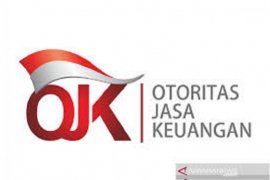"The program, which is based on economic empowerment, socially-oriented and has an aim to conserve environment, is consistent with the condition of Indonesia where most people depend on agriculture, plantation, animal husbandry and fisheries sectors," Chairman of the FSA Commissioners Board, Muliaman D. Hadad, said here Thursday.
According to him, social finance program can be realized through a creation of new funding instruments to finance various projects that benefit the community.
The two instruments to support social spending are Social Finance Investment Fund and Social Impact Bonds.
The Social Finance Investment Fund is an investment fund to finance various social projects to address poverty, unemployment and economic development of society.
Meanwhile, the Social Impact Bonds is a debt securities to finance projects that have social impacts, such as health, education, and environmental fields.
"Those social financing instruments, the investment and financing are issued based on social community development at the same time preserving the environment," Hadad said.
UNDPs Regional Director Christophe Bahuet supports the programs that covers various forms of private funding such as impact investors, angel investors, crowdfunding or venture capital that provide benefits not only in financial terms, but also social life.
Earlier, to increase social finance, the FSA has launched a variety of initiatives and strategic programs such as Jaring (net) program for the maritime industry sector development.
The FSA has also developed Financial Services Without Office in the Framework of Inclusive Finance followed by 20 banks, with 275,916 agents, 3,700,215 customers, with a savings fund of Rp216,5 billion.
In addition, the FSA supports small business credit program by issuing a new scheme to distribute the benefits of the credit for more productive sectors.(*)
Editor: Heru Purwanto
Copyright © ANTARA 2017











